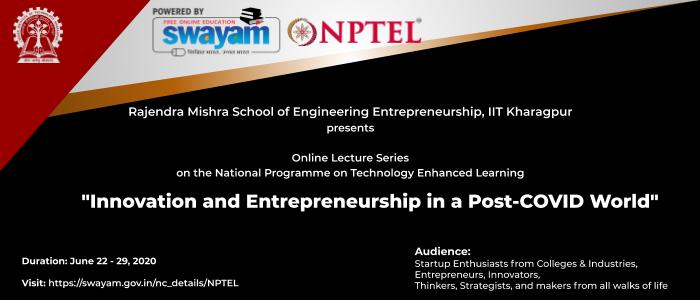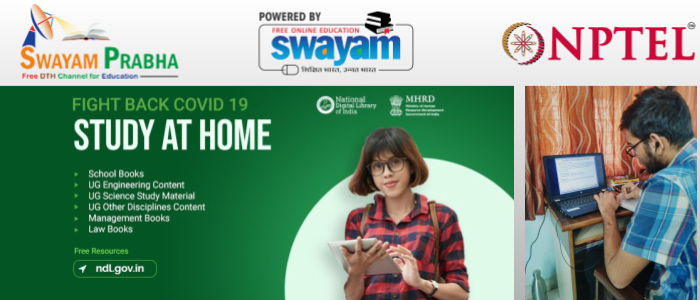
IIT Kharagpur’s Online Course on Innovation & Entrepreneurship
IIT Kharagpur launches Online Lecture Series on Innovation & Entrepreneurship dealing with several crucial aspects in the aftermath of the COVID-19 pandemic. India Today Education Times News18 NDTV Business Insider DataQuest Outlook Careers360 Yahoo News Republic World ABP Education Indian Express IIT Kharagpur's Rajendra Mishra School of Engineering Entrepreneurship (RMSoEE) is all set to…


